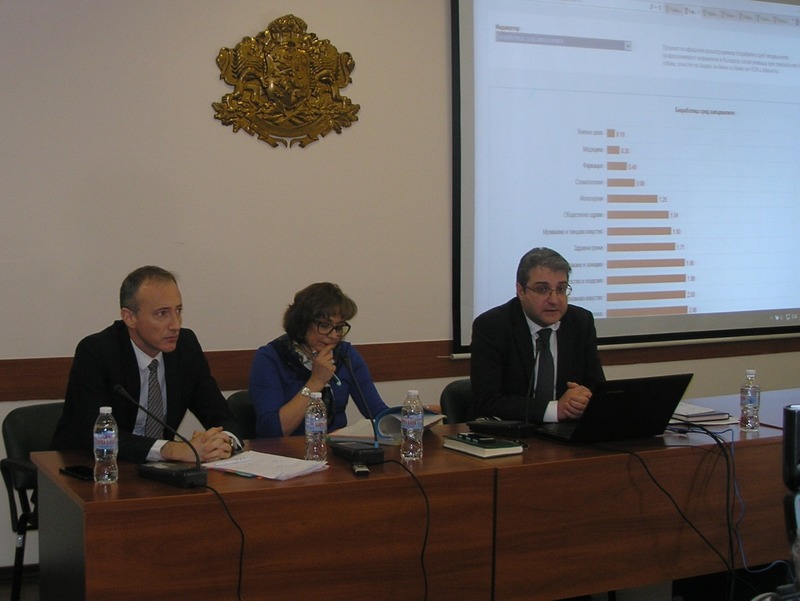“As a result of the Ranking system of higher education institutions in Bulgaria, the Ministry of Education and Science (MES) is able to make a comprehensive assessment of the quality of educational work in line with the needs of the labour market. It serves as a basis for the policy for restructuring the admittance and funding processes of universities and facilitates the links between the higher education market and labour market.” These words were said by the Minister of Education and Science Krasimir Valchev, at the presentation of the new edition of the University Ranking System (http://rsvu.mon.bg). According to him, the policies give a result and should continue, relying on the processed data, derived from the System.
Its new edition demonstrates a continuing trend in improving the achievement of higher education graduates in the labour market, whilst at the same time confirming the existence of large differences in average income, unemployment and applicability of the acquired higher education degree depending on the completed professional field and the specific higher education establishment. According to the ranking system data gathered for 2017, the proportion of registered unemployed persons among the graduates from the Bulgarian universities in the last 5 years dropped to 2.91% in 2017 as compared to 3.38% in preceding year and to more than 4% in year 2013.
For a next consecutive year, the lowest unemployment (less than 1%) and the highest degree of applicability of the higher education degree acquired (over 90%) have been observed among the graduates in professional fields Medicine, Pharmacy, Stomatology and Military Science. An unemployment rate of more than 4% is registered only in three professional fields – Religion and Theology, Social Work and Materials and Materials Sciences.
The ten professional fields with the highest average income among graduates are: Informatics and Computer Science; Mathematics; Communication and Computer Technology; Public Health; Research, Extraction and Development of Ores and Minerals; Metallurgy; Military work; Pharmacy; Medicine; and Electrical Engineering, Electronics and Automation. The graduates in Informatics and Computer Science from the Sofia University and those in Administration and Management from the American University are distinguished by an average monthly taxable income of over BGN 3 000.
The highest average grades of the diploma for completed secondary education have the enrolled students in the first course of the professional fields Medicine (5.57), Pharmacy (5.51) and Stomatology (5.46). With the lowest grades of the completed secondary education are the freshmen in the professional fields Animal Breeding and Reproduction (4.29), Materials and Materials Science (4.40) and Research, Extraction and Development of Ores and Minerals (4.40).
